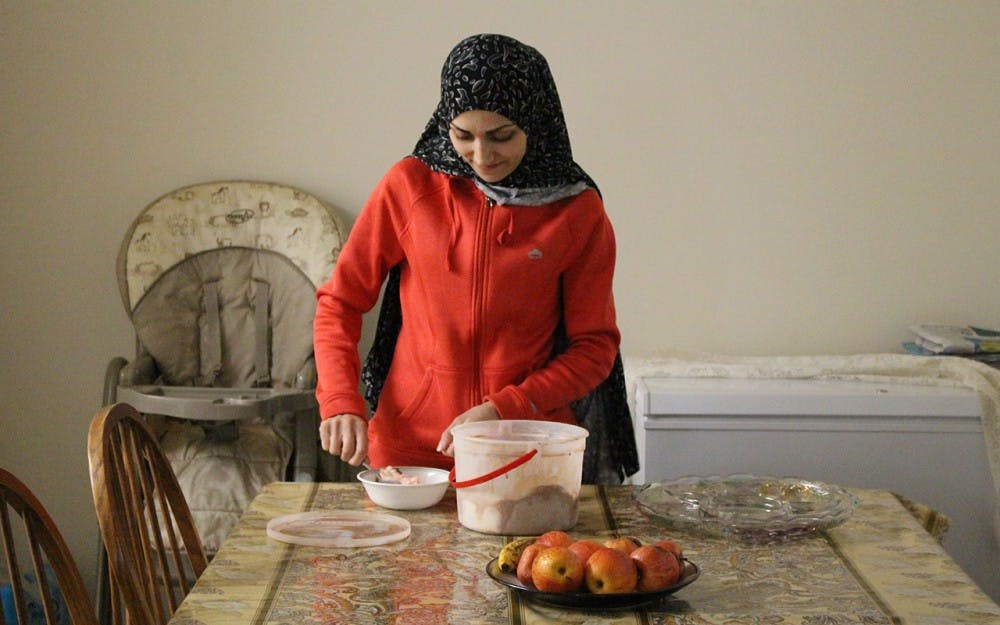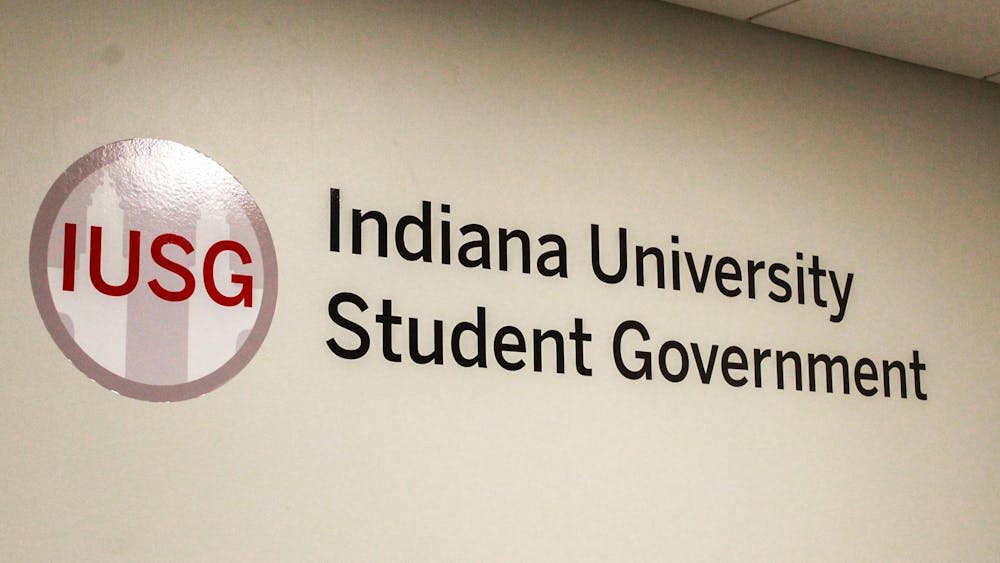INDIANAPOLIS — The Lababidi family wanted a normal life in the United States. So on Wednesday afternoon this week, they sat in their small apartment on the west side of Indianapolis and worked on the most mundane of tasks — learning how to pay their bills.
Duha and Mohamed Lababidi sat on their mismatched couches and watched as Lina al-Midani, a Syrian immigrant turned translator, looked over the bulky stack of envelopes on their coffee table.
Gas. Water. Electricity.
The bills came addressed to them in a language that they didn’t know except for the words “thank you.” Some of the bills were already overdue because they were sent to Exodus Refugee Immigration Inc., the resettlement group that helped them put down roots in their new life, instead of to their own apartment.
Exodus employees sometimes used to hand-deliver the mail when they came to check in, but the organization had to fire many staff members. President Donald Trump’s ban on international travel and the refugee program led to losses in grant funding, which supported organizations like Exodus.
Now, Exodus is struggling just to keep its doors open.
The Lababidi family had been reading the news, but they had not expected Trump would sign orders to ban Syrian refugees like them along with others from seven other Muslim-majority countries. In his speeches, Trump said refugees posed a threat to the United States, but the Lababidis had come here to escape a threat, not become one.
They had arrived in the bitter cold of December 2016. They brought what they’d been told to bring — things like winter clothes, cooking utensils — and the things they couldn’t stand to leave behind.
Duha’s father had been ready to follow them. The family had to borrow money to pay $1400 for DNA testing to prove he was related to refugees already resettled in the U.S. only to be stopped by the ban. The money was wasted and he was stuck in Syria, a world apart from his family.
In Indianapolis, al-Midani explained in Arabic the anatomy of each bill. As the Lababidis listened intently, their 3-year-old daughter, Remas, pranced across the sparse two-bedroom apartment. There were no photos on the walls, no artwork. Exodus had provided most of the furniture, including couches, two floor lamps and a coffee table.
After the bills, they worried about the rent. Mohamed hadn’t gotten a job yet. Before he came here, he’d been a painter, decorating the insides of houses. He held out a green sheet of paper to Lina, who studied it with a furrowed brow.
She explained it appeared Exodus would pay the rent until May 1, but she sounded hesitant.
“Exodus might not be able to do as much as it used to,” she said.
Shortly after, the other two Lababidi daughters hopped off the school bus and came into the apartment. They took off their parkas, left their boots by the door and kissed their parents and their little sister.
Side by side, Samira, 10, and Sara, 7, looked almost like twins. They wore matching jeans with strips of leopard print and had their hair tied in long, dark ponytails running down their backs.
They’d started school right after the new year, despite their limited English. Like most things in their new lives, school was exciting but foreign. They had some friends who were also refugees in their classes to help translate occasionally, but for the most part, the girls had to figure things out for themselves.
Samira said she was used to being at the top of her class in Syria. She had a knack for math and took great pride in it, but she was struggling to keep up here, and it frustrated her. She was smart, and she knew it. She wanted to do well.
She took out a beaten yellow notebook and showed her mother her homework, a set of fractions to multiply, copied in dark pencil in a 10-year-old’s oversized handwriting. Her teacher wanted her to try to work through them on her own.
They didn’t have a car yet, so Mohamed would walk 40 minutes to Walmart for groceries. It didn’t bother him. Where he’d come from, everyone walked everywhere.
“Sometimes I feel like I’m the only one who walks here,” Mohamed said in Arabic.
The family huddled in its living room that Wednesday and drank tea in tiny glass cups they’d brought with them. It was green tea from Walmart, but Duha sweetened it and added a cinnamon stick to make it more like the tea from home.
The three girls cuddled on the couch and watched silly YouTube videos on a phone. Duha and Mohamed watched them and grinned.
Their transition to the country had been smoothed by familiar faces. Duha’s brother, his wife and children were the first family of Syrian refugees resettled in Indianapolis two and a half years ago. They live a few apartments over. He’d talked up the U.S. and convinced Duha and Mohamed to join him.
The ban had come as a surprise, and now the Lababidis felt a nagging fear. The ban was delayed for now, but a revised ban was soon to follow and they knew it. They didn’t have green cards yet. They couldn’t say for certain that there wouldn’t be a knock on the door from an official ordering them to leave.
For now they favor optimism. They enjoy the comfort of their apartment and blending the language and customs they’d brought from their old life with their new one. They don’t venture outside too often. They aren’t used to the cold.
In Arabic, they said they were waiting for spring.
They were told it was beautiful here.
In Friday's edition of the Indiana Daily Student, a story titled "Syrian family builds life in Indy, amid strife of Trump polices" falsely referred to Lina al-Midani as a Syrian refugee. She is a Syrian immigrant. The IDS regrets this error.






